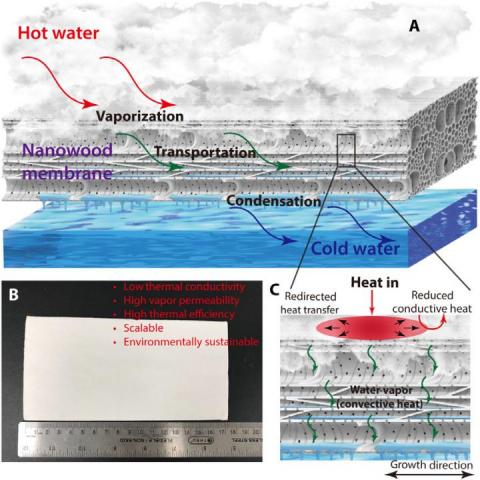There is a reason that fossil fuels have stuck around for so long. No longer do they have terrific energy density in the form of gasoline but they make up many useful products. But many of those products can be difficult to recycle.
A new wood membrane takes a page out of the book of trees instead. In a limited sense, the intricate system of water circulating in a tree can filter it and a team of researchers have figured out how to use a thin slice of wood as a membrane through which water vapor can evaporate, leaving behind salt or other contaminants.

Schematic of the process of using the new wood membrane to distill water.
Image: T. Li, University of Maryland.
The wood membrane could be more sustainable material, and according to the researchers, has very high porosity, which promotes water vapor transport and prevents heat loss. In their paper on it, the researchers demonstrate that the new membrane they designed also performs 20 percent better than commercial membranes in water distillation tests.





Comments